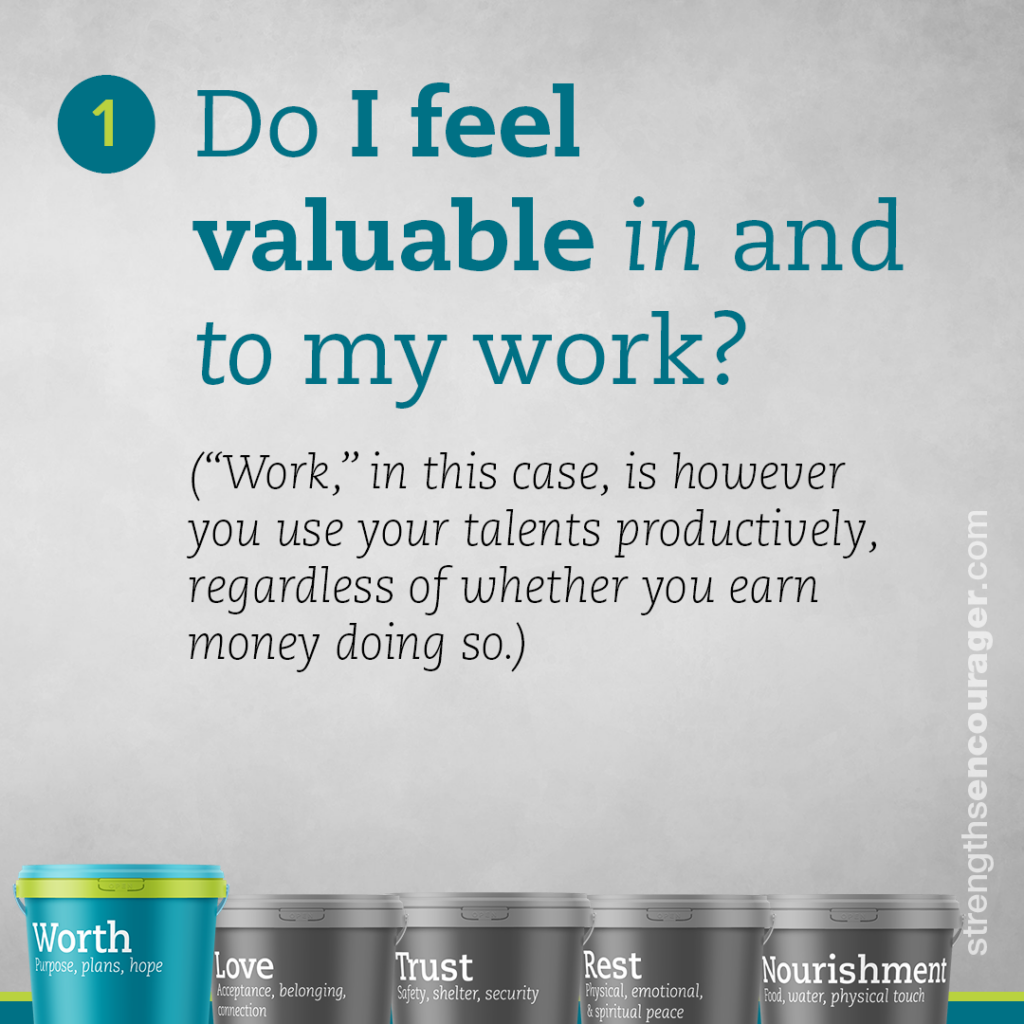
SLATHY
[ sla-thee ] adjective
how we feel when our needs aren’t met
What do we need to not just survive, but thrive?
There are a lot of ideas about what we need, as humans.
Perhaps the most popular is Maslow‘s hierarchy of needs, but his research was primarily focused on studying “exemplary” people, and those who were among the healthiest 1% of their peers.
My experiences of parenting more than two dozen kids through foster care have led me to draw some conclusions about what we truly need for optimal wellbeing. The needs I propose are columns instead of pyramid slices. When any of these needs suffer, the whole person suffers. But when each of these needs are understood and fulfilled, we thrive.
Worth
Having purpose, plans, and hope
Love
Experiencing acceptance, belonging, and connection
Trust
Knowing safety, shelter, and security
Rest
Finding physical, emotional, and spiritual peace
Nourishment
Being strengthened by food, water, and physical touch

How are you feeling? I don’t know.
We don’t have a good way to talk about how we feel when our needs aren’t met, so we often use “tired” or even “fine.”‘
Clinicians sometimes use the word “dysregulated” to describe the behaviors evidenced when kids’ needs aren’t met. But that word is not one anyone—let alone a teen girl—feels good about, and it doesn’t get to the heart of the issues.
So I decided to create a new word we could all be comfortable using.
SLATHY gives us a way to talk about it.
Each letter in the word SLATHY signifies how we can feel when just one of our needs isn’t met.
Shamed
Lacking purpose, plans, or hope
Lonely
Without acceptance, belonging, or connection
Afraid
Unable to trust my safety, shelter, or security
Tired
Inadequate physical, emotional, or spiritual peace
Hungry
Insufficient or unwholesome food, water, or physical touch
What about the Y? In my initial conversations about this, I realized it’s not always super clear which of our five need buckets is low. So we needed a catch-all bucket—this is where the y came in. It stands for yucky, and signifies a general feeling that may (or may not) later morph into something else.
In the years since, I’ve come to recognize there are a lot of external forces that can push us into feeling SLATHY—such as a worldwide pandemic, for starters—and the yucky bucket works well for that.
So, what does SLATHY look like for you?
These are just some of the words I’ve heard used to describe how this plays out in our lives… anxiety… fear… worry… withdrawal… isolation… impatience… frustration… sleeping more… sleeping less… sadness… impulsivity… brain fog… confusion… anger… easily distracted… rudeness… judgement… hypercritical… hyper vigilant… more emotional… burnout… all sorts of pain… unmotivated… lost…
Less judgement. More compassion.
We all know how SLATHY makes us feel, because we all experience unmet needs.
This word helps us express our feelings without letting everyone know which of our needs is unmet. It allows us to maintain privacy, when desired, while still receiving the needed compassion and understanding.
In April of 2020, people who had heard me speak about SLATHY within a family setting, started telling me their workplaces needed the word. COVID-19 meant way more people started feeling off without knowing how to talk about it. This led me to incorporate conversations about our needs and SLATHY into my team building sessions as The Strengths Encourager, with great success.
And as more and more teams started searching online for this word—SLATHY—I realized it was time to create this page.

The Genesis of SLATHY
Wendy was recently interviewed about SLAHTY by Dr. Gary Crotaz on The Unlock Moment podcast.
